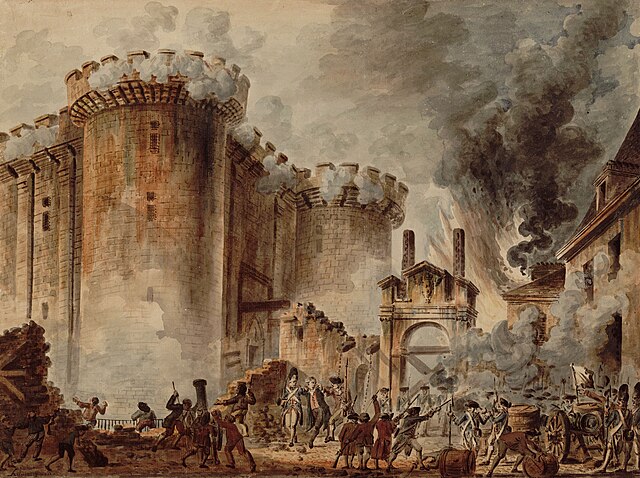Abolition of feudalism in France
One of the central events of the French Revolution was to abolish feudalism, and the old rules, taxes and privileges left over from the age of feudalism. The National Constituent Assembly, acting on the night of 4 August 1789, announced, "The National Assembly abolishes the feudal system entirely." It abolished both the seigneurial rights of the Second Estate and the tithes gathered by the First Estate. The old judicial system, founded on the 13 regional parlements, was suspended in November 1789, and finally abolished in 1790.
Meeting of the night of 4 August 1789 by Charles Monnet, (Musée de la Révolution française).
The signing of the August Decrees – events of the Revolution in bas relief, Place de la République
The French Revolution was a period of political and societal change in France that began with the Estates General of 1789, and ended with the coup of 18 Brumaire in November 1799 and the formation of the French Consulate. Many of its ideas are considered fundamental principles of liberal democracy, while its values and institutions remain central to modern French political discourse.
The Storming of the Bastille, 14 July 1789
Caricature of the Third Estate carrying the First Estate (clergy) and the Second Estate (nobility) on its back
Le Serment du Jeu de paume by Jacques-Louis David (c. 1791), depicting the Tennis Court Oath
The Storming of the Bastille on 14 July 1789; the iconic event of the Revolution, still commemorated each year as Bastille Day






